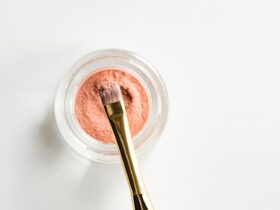Perfume, a complex blend of fragrant oils, aroma compounds, fixatives, and solvents, is a carefully orchestrated symphony of scents. The way it’s applied can influence how that symphony unfolds on your skin. One popular method is using a perfume atomizer. But does transferring your precious fragrance to an atomizer change the scent itself? This question sparks debate among perfume enthusiasts, and the answer is nuanced, depending on several factors.
The Potential for Alteration: A Deep Dive
While a well-maintained atomizer *shouldn’t* drastically alter a perfume’s scent, several mechanisms can introduce subtle or even noticeable changes:
1. Oxidation and Light Exposure:
Perfume bottles are typically made of dark glass for a reason: to protect the fragrance from light and oxygen. Light, especially UV light, can break down chemical bonds in the fragrance molecules, leading to alterations in the scent profile. Oxygen also contributes to oxidation, a chemical process that can turn some fragrance notes rancid or dull. When perfume is transferred to an atomizer, especially a clear or poorly sealed one, it becomes more vulnerable to these elements.
Atomizers made of clear plastic or glass offer little to no protection from light. Even atomizers marketed as “UV resistant” might only offer partial protection. Furthermore, the act of spraying a perfume into an atomizer introduces air into the liquid, accelerating the oxidation process.
2. Contamination from Previous Use:
A common mistake is reusing atomizers without thoroughly cleaning them. Even trace amounts of a previous fragrance can contaminate the new perfume, altering its scent. The lingering notes of the old fragrance can clash with the intended composition, creating an unpleasant or muddled aroma. Imagine mixing a heavy, oriental perfume with a light, citrusy one – the result is unlikely to be harmonious.
Cleaning an atomizer effectively requires more than just rinsing it with water. Residue can cling to the inner surfaces, especially in hard-to-reach areas. Using isopropyl alcohol (90% or higher) followed by thorough rinsing with distilled water is recommended to remove any remaining fragrance oils.
3. Material of the Atomizer:
The material of the atomizer itself can play a role. Some plastics, particularly lower-quality ones, can react with the fragrance, leeching chemicals into the perfume and altering its scent. Glass atomizers are generally considered the safest option, as they are inert and less likely to react with the fragrance compounds.
Metallic components, such as the pump mechanism, can also potentially interact with certain fragrance ingredients. For example, some perfumes contain ingredients that can corrode or react with certain metals, leading to discoloration of the perfume and a change in its scent.
4. Changes in Spray Pattern and Atomization:
The way a perfume is atomized can also affect the perceived scent. Different atomizers produce different spray patterns – some produce a fine mist, while others produce a coarser spray. A fine mist allows the fragrance to disperse more evenly and evaporate more quickly, potentially highlighting the top notes. A coarser spray might deliver a more concentrated dose of the base notes.
The size of the droplets also influences how the fragrance interacts with the skin. Smaller droplets evaporate more quickly, while larger droplets remain on the skin for longer, allowing the base notes to develop more fully. This means that using an atomizer with a significantly different spray pattern than the original perfume bottle can subtly alter the perceived scent.
5. Evaporation Rate:
Even a well-sealed atomizer is not completely airtight. Over time, some of the more volatile fragrance compounds can evaporate, altering the scent profile. This is especially true for atomizers that are frequently opened and closed. The rate of evaporation depends on the quality of the atomizer’s seal, the temperature, and the composition of the perfume itself.
Top notes, being the most volatile, are the first to disappear, potentially leaving the fragrance smelling flatter or less complex than it originally did. This is why it’s generally recommended to use perfume decanted into an atomizer within a reasonable timeframe.
Minimizing the Risk of Alteration: Best Practices
While some alteration is possible, you can minimize the risk and preserve the integrity of your perfume’s scent by following these best practices:
- Choose High-Quality Atomizers: Opt for atomizers made of glass or high-quality, inert plastic. Look for atomizers with a tight seal to minimize evaporation and oxidation.
- Clean Thoroughly Before Each Use: Always clean your atomizer thoroughly with isopropyl alcohol and distilled water before filling it with a new fragrance.
- Protect from Light: Store your atomizer in a dark, cool place to protect the perfume from light and heat. Consider using atomizers with dark-colored glass or opaque materials.
- Fill Atomizers Strategically: Only fill the atomizer with the amount of perfume you plan to use within a reasonable timeframe (e.g., a few weeks or months). Avoid filling it to the brim if you won’t be using it frequently.
- Consider the Fragrance Type: More delicate or volatile fragrances might be more susceptible to alteration. Take extra precautions when decanting these types of perfumes.
- Avoid Over-Filling: Leaving a small air gap in the atomizer can help reduce the risk of pressure buildup and potential leaks.
- Regularly Inspect: Check your atomizer regularly for any signs of leaks, corrosion, or discoloration. Replace it if you notice any issues.
Conclusion: A Balancing Act
The question of whether a perfume atomizer changes the scent of your perfume doesn’t have a simple yes or no answer. While a well-maintained, high-quality atomizer *shouldn’t* drastically alter the scent, several factors can contribute to subtle or even noticeable changes. Oxidation, contamination, the material of the atomizer, and changes in atomization can all play a role. By following best practices and choosing the right atomizer, you can minimize the risk of alteration and enjoy your favorite fragrances in their intended form.
Perguntas frequentes (FAQs)
Q: Is it safe to decant expensive perfumes into atomizers?
A: Yes, it’s generally safe, but it’s crucial to use a high-quality, clean atomizer and follow the best practices mentioned above to minimize the risk of alteration. You might want to test the process with a less expensive perfume first.
P: Com que frequência devo limpar meu atomizador de perfume?
A: You should clean your atomizer every time you switch fragrances. Even if you’re refilling it with the same perfume, it’s a good idea to clean it periodically to remove any accumulated residue.
Q: What’s the best way to clean a perfume atomizer?
A: The best way is to rinse it thoroughly with isopropyl alcohol (90% or higher) followed by rinsing with distilled water. Allow it to air dry completely before refilling.
Q: Can I use tap water to clean my atomizer?
A: It’s best to avoid tap water, as it can contain minerals and impurities that can leave residue inside the atomizer. Distilled water is the preferred choice.
Q: Do glass atomizers always preserve the scent better than plastic ones?
A: Generally, yes. Glass is inert and less likely to react with fragrance compounds. However, high-quality, inert plastic atomizers can also be suitable, especially if they are opaque and offer UV protection.
Q: How long can I store perfume in an atomizer without it changing?
A: This depends on the quality of the atomizer, the type of fragrance, and storage conditions. As a general guideline, aim to use the perfume within a few weeks or months to minimize the risk of alteration. Monitor the scent periodically for any changes.
Q: Can decanting a perfume into an atomizer affect its longevity?
A: Yes, potentially. The increased exposure to air and light during the decanting process and subsequent use can lead to faster degradation of the fragrance compounds, potentially reducing its longevity on the skin.
Q: Are there any specific fragrance notes that are more susceptible to alteration in atomizers?
A: Yes, top notes, especially citrus and herbaceous notes, are often more volatile and prone to evaporation and oxidation. Fragrances with a high concentration of these notes may be more susceptible to alteration.
Q: Where can I find reliable information about perfume care and storage?
A: You can find reliable information on perfume care and storage from reputable fragrance blogs, online forums dedicated to perfume enthusiasts, and directly from perfume brands.
Q: Does the color of the atomizer affect the perfume?
A: Yes, darker colors offer better protection against light degradation. Opaque atomizers are best for protecting the perfume, followed by amber or other dark-tinted glass.
















Deixe uma resposta